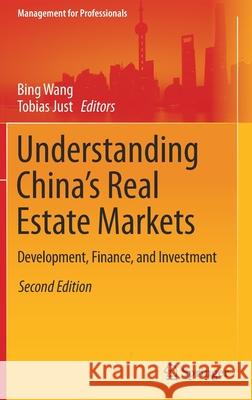Understanding China's Real Estate Markets: Development, Finance, and Investment » książka
topmenu
Understanding China's Real Estate Markets: Development, Finance, and Investment
ISBN-13: 9783030717476 / Angielski / Twarda / 2021 / 305 str.
Kategorie:
Kategorie BISAC:
Wydawca:
Springer
Seria wydawnicza:
Język:
Angielski
ISBN-13:
9783030717476
Rok wydania:
2021
Wydanie:
2021
Numer serii:
000424298
Ilość stron:
305
Waga:
0.63 kg
Wymiary:
23.39 x 15.6 x 1.91
Oprawa:
Twarda
Wolumenów:
01
Dodatkowe informacje:
Wydanie ilustrowane











